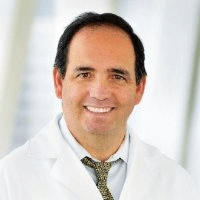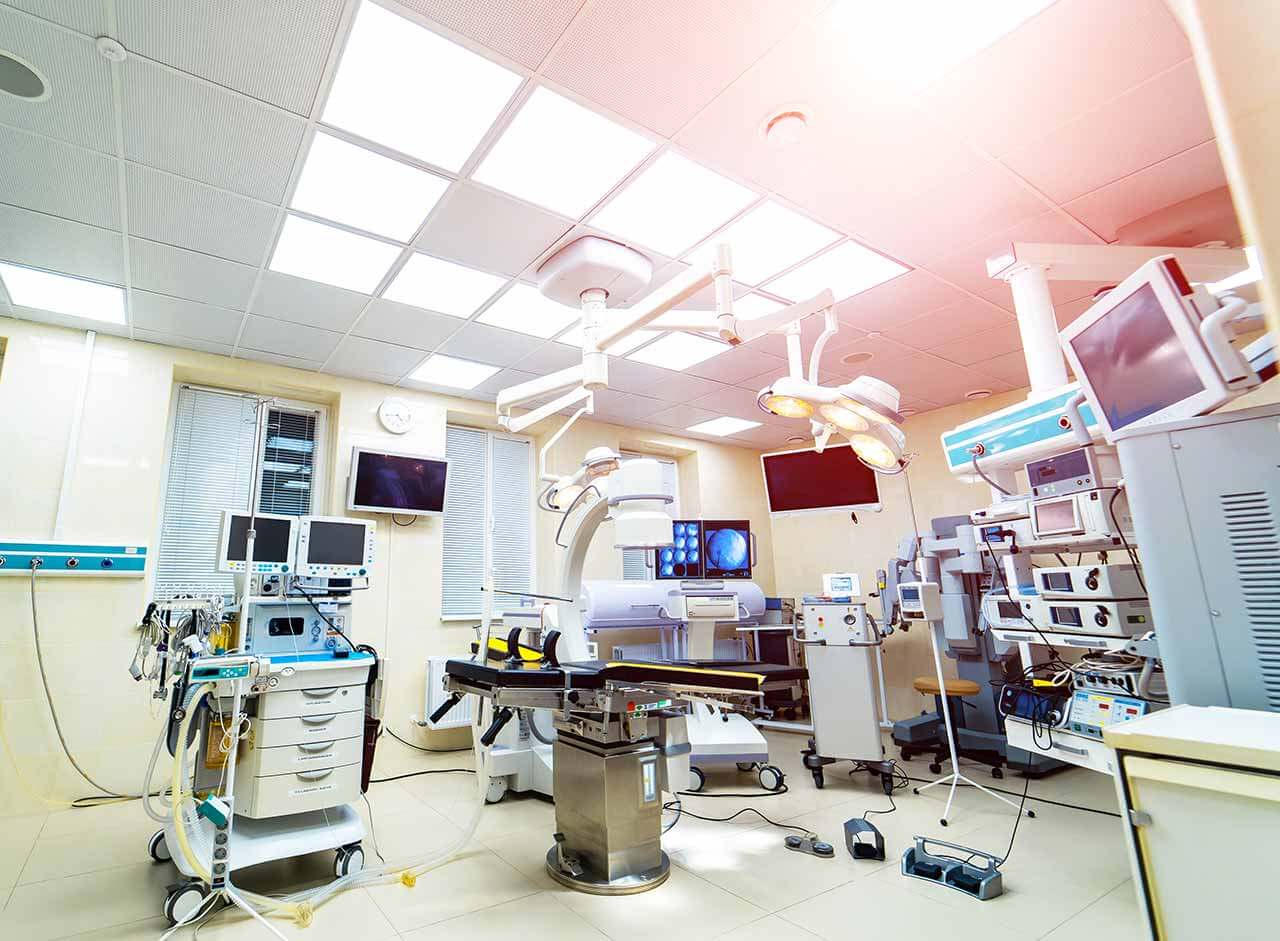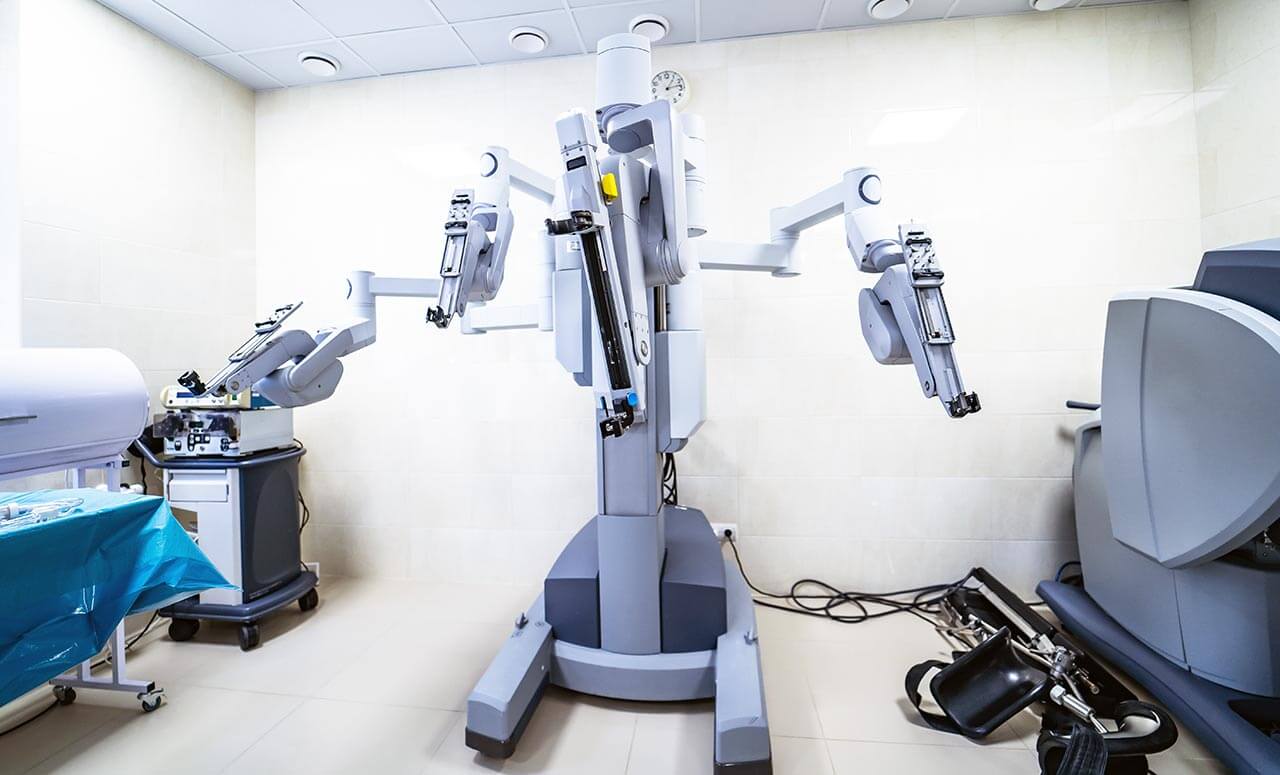
The program includes:
- Initial presentation in the clinic
- clinical history taking
- review of medical records
- physical examination
- urological examination
- laboratory tests:
- complete blood count
- general urine analysis
- biochemical analysis of blood
- inflammation indicators (CRP, ESR)
- indicators blood coagulation
- tumor marker, PSA
- ultrasound of the urogenital system
- CT/MRI of the abdomen and pelvis
- preoperative care
- transuretral tumor excision
- histologically and immunohistochemically
examination of the remote tissues - symptomatic treatment
- control examinations
- the cost of essential medicines and materials
- nursing services
- full hospital accommodation
- explanation of future recommendations
Required documents
- Medical records
- MRI/CT scan of the abdomen and pelvis (not older than 3 months)
- Biopsy results (if available)
Service
You may also book:
 BookingHealth Price from:
BookingHealth Price from:
About the department
The Department of Urology at the Rambam Health Care Campus Haifa offers the full range of medical services for the diagnostics and treatment of urinary tract diseases in men and women, as well as reproductive disorders in men. The department also has the most modern equipment and imaging technologies for the provision of high-quality surgical treatment of all urological pathologies. The health of patients is in the hands of the highly qualified doctors who keep pace with the innovations in medicine and apply their knowledge and skills for the effective treatment of ailments, even the most severe ones. The department is headed by Prof. Dr. med. Gilad Amiel.
The department's urologists mostly diagnose and treat patients with prostate cancer or benign prostatic hyperplasia, kidney stone disease, congenital malformations of the urinary tract. It is worth noting that the department's specialists have extensive experience in such endoscopic procedures as percutaneous nephrolithotomy and ureteroscopy using the very latest endoscopes, laser devices and imaging systems. The Dornier HM3 device, which is the most effective urological lithotripter, can also be used to treat urological diseases. If possible, minimally invasive treatment methods are preferred. However, in some cases, the traditional open surgery, which is also part of the service range of the department, remains the optimal treatment method. In addition, special attention is paid to the treatment of patients with benign diseases of the prostate gland. The operations to treat benign diseases are performed using resectoscopes, which minimize complications after transurethral resection of the prostate. The department also carries out a biopsy and diagnostics of prostate cancer using a special sonar system. This disease can be treated using various surgical techniques. In many cases, the doctors also resort to brachytherapy (internal radiation).
The department specializes in the diagnostics and treatment of the following urological pathologies:
- Cancers
- Prostate cancer
- Testicular cancer
- Kidney cancer
- Bladder cancer
- Malignant urinary tumors
- Benign prostatic hyperplasia
- Urethral stricture
- Peyronie's disease
- Urinary incontinence
- Kidney stone disease
- Erectile dysfunction
- Male infertility
- Prostatitis
- Congenital urinary malformations
- Kidney anomalies
- Abnormalities of the reproductive organs
- Inflammatory urological diseases
- Varicocele
- Phimosis
- Other diseases
The department's range of medical services includes:
- Diagnostic options
- Cystoscopy
- Urography
- Electromyography (EMG) of the pelvic floor muscles
- Selective angiography
- Neurophysiological examinations
- Doppler ultrasound examination
- Nocturnal penile tumescence test (measurement of penile rigidity using the RigiScan device)
- Therapeutic options
- Stone fragmentation in the case of kidney stone disease
- Extracorporeal shock wave lithotripsy
- Ureteroscopy
- Percutaneous nephrolithotomy
- Bladder reconstruction
- Formation of urostomy (ileal conduit)
- Sigmo-rectal pouch for urinary diversion
- Formation of artificial bladder from the small intestine
- Cystectomy (bladder removal surgery)
- Nephrectomy (kidney removal surgery)
- Open prostatectomy (prostate removal surgery)
- Retropubic approach
- Suprapubical approach
- Brachytherapy (modern high-tech method of radiation therapy, in which the source of radiation is placed in the immediate vicinity of the prostate)
- Transurethral resection of the prostate
- Robotic surgery (Da Vinci surgical system)
- Stone fragmentation in the case of kidney stone disease
- Other diagnostic and treatment methods
Curriculum vitae
Dr. Amiel is a graduate of the Ben-Gurion University Medical School in Beer-Sheva and is a Captain in the Israeli Defense Forces. He completed a residency in Urology at the Bnai-Zion Medical Center in Haifa, during which he dedicated two years to basic science research (1998 - 2000). He also served as a Research Fellow at the Laboratory for Tissue Engineering and Cellular Therapeutics, Department of Urology at the Children’s Hospital, Harvard Medical School in Boston (under the supervision of Dr. Anthony Atala).
Upon completion of his urologic residency in Israel in 2003, Dr. Amiel pursued a clinical and research fellowship in Urologic Oncology and Minimally Invasive Surgery at the Scott Department of Urology, Baylor College of Medicine in Houston, Texas (2004 - 2006). At Baylor, he established a Tissue Engineering Laboratory that focuses on translational research in genitourinary reconstruction. Thereafter, Dr. Amiel joined the Faculty at Baylor in 2007 and was an Associate Professor, Director of Education and the Director of the Laboratory for Genitourinary Tissue Engineering in the Scott Department of Urology at Baylor.
In February 2015, Dr. Amiel accepted the position of the Chief Physician of the Department of Urology at the Rambam Health Care Campus Haifa. He also maintains a position of Associate Professor at the Scott Department of Urology, Baylor College of Medicine. Dr Amiel recently received the Clinical Research Institute of Rambam (CRIR) grant and is currently establishing the Laboratory for Genitourinary Reconstruction at the Clinical Research Institute at Rambam.
Dr. Amiel’s clinical practice consists of urologic oncology and genitourinary reconstruction. He performs robotic, laparoscopic and open surgery for bladder, kidney, prostate, testis and penile cancer, including robotic partial nephrectomy, robotic cystectomy, complex reconstructive urinary operations. After performing over 150 robotic cystectomy cases at Baylor College of Medicine, he established the first Robotic Cystectomy Program in Israel at Rambam and performed almost 30 cases as of December 2015. Dr. Amiel’s basic research focuses on genitourinary reconstruction utilizing biological matrices and adipose stem cells. His clinical research projects focus on the treatments for bladder cancer, prostate cancer and cancer education.
Dr. Amiel received several teaching and education awards and until recently (10.2015) served as the President of the American Association for Cancer Education (AACE). He currently serves as the Chairman of the Advisory Board to the AACE. Prof. Amiel is also a Member of the American Urological Association (AUA), Urology Research Foundation (URS), Bladder Cancer Advocacy Network (BCAN), Tissue Engineering and Regenerative Medicine International Society (TERMIS), Israel Medical Association (IMA) and several other organizations. He is the Associate Editor of the Journal of Cancer Education and a Reviewer for several other journals. He received thus far 16 grants, including a NIH-SBIR Grant (over 3 million dollars), and was PI or Co-Investigator in numerous clinical trials. He has co-authored over 60 peer-reviewed publications and book chapters.
Photo of the doctor: (c) Rambam Health Care Campus Haifa
About hospital
The Rambam Health Care Campus Haifa is the largest and the most progressive hospital in Northern Israel. The medical center was founded in 1938 and nowadays is proud of its long history, rich and successful experience in providing comprehensive medical services in all medical fields. The hospital serves more than 2 million locals, as well as the members of the Israel Defense Forces, UN Peacekeeping Forces and the United States Sixth Fleet. The medical center houses 61 inpatient departments, 73 specialized departments, 10 medical institutes and 25 laboratories. It is also the clinical and academic base of the Technion – Israel Institute of Technology.
The medical center includes the Ruth Rappaport Children's Hospital. It is a multidisciplinary medical facility specializing in the diagnostics and treatment of various pathologies, including extremely rare ones, in children of all age groups.
The total number of employees in the medical facility is 4,000 (715 doctors and 1,407 nurses). Many doctors are world-famous in the field of their clinical specialty and participate in advanced research projects in order to offer new treatment methods not only to their patients, but also to the world community.
The medical center is a leader in the field of medical care in emergency cases with a large number of victims. In addition, the hospital is certified in accordance with the strict standards of the Joint Commission International (JCI).
During the long-term and successful clinical practice, the medical center has formed a clear vision of optimal medical support and system of values. These suggest that the primary focus is always on the patient with his individual needs and wishes, while the medical services are professional, high-quality and safe. In addition, the specialists of the hospital apply the most effective and innovative treatment methods, as well as create a favorable environment, which contributes to the improvement of physical and emotional health and well-being of the patient. The key role in the daily work of the hospital is also played by a tolerant attitude towards all patients.
Photo: (c) depositphotos
Accommodation in hospital
Patients rooms
The patients of the Rambam Health Care Campus Haifa live in comfortable rooms designed in light colors. The standard room includes an automatically adjustable bed, a bedside table, a wardrobe for storing clothes, an armchair and chairs for receiving visitors, a TV, a telephone. Each room is equipped with an ensuite bathroom with shower and toilet.
Meals and Menus
The patients of the hospital are offered tasty and balanced three meals a day: breakfast, lunch and dinner. The menu also includes dietary and vegetarian dishes.
Further details
Standard rooms include:





